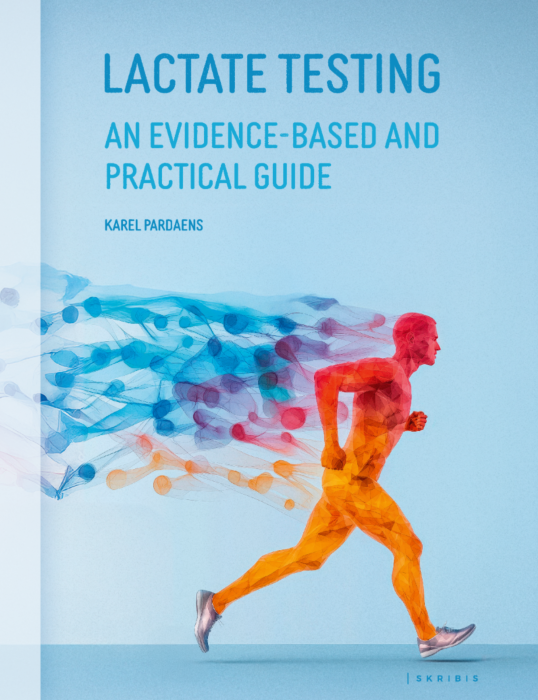Deze webshop gebruikt cookies.
Lactate testing
For many years and in many sports, ‘lactate testing’ is the method of choice for evaluating endurance. More recently, lactate testing has become very accessible, and this trend will only continue. Even if blood sampling becomes unnecessary in the future, interpreting the test results will remain important. This manual wants to be a guide for practitioners, who really want to understand the why, how and what of exercise testing with lactate measurements.
Interpreting lactate measurements is probably one of the most controversial topics in exercise physiology. Karel Pardaens does not claim to have all the answers or to have exhaustively mastered the subject. He considers this book a work in progress, and questions several traditions within it. After 30 years of trial and error, he shares what he considers as pitfalls and effective strategies. He offers tips and tricks, fostered by his experience teaching many classes. You can test your knowledge (or that of your students) with several cases and multiple choice questions (with respective solutions).
In short, this manual first and foremost aims to be a practical guide, with some theoretical background and without shying away from philosophy. In other words, this handbook hopes to inspire you – even if you don’t agree with all of Karel’s recommendations – to become a better athlete, trainer, exercise physiologist or teacher.
| Ondertitel | An evidence-based and practical guide |
|---|---|
| ISBN | 9789493388604 |
| Jaar | 2025 |
| NUR | 488 |
| Formaat | 200 x 260 mm |
| Volume | 212 p. |


